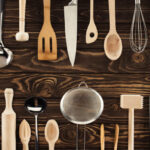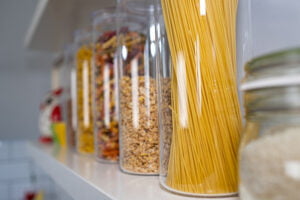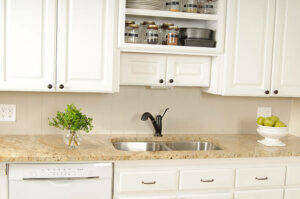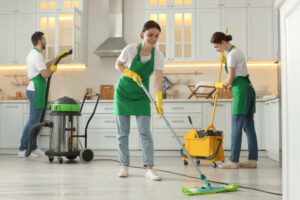Keeping your kitchen clean is essential if you want to maintain a healthy and comfortable environment in your home. Finding the best cleaner for your needs can be challenging because there are so many options. If you want your kitchen surfaces to be spotless and clean, I highly recommend reading this article. Below is a list of the top ten cleaners.
1. Cleaner for every occasion
Its adaptability makes the multi-purpose cleaner ideal for use on a variety of kitchen surfaces. They are great for removing food residue, grease and dirt, leaving a clean and fresh smell. Look for alternatives that won't damage kitchen surfaces, appliances and countertops.
2. Bactericidal spray
Especially in food preparation areas, sanitizing sprays are crucial for killing germs and bacteria. Choose a disinfectant spray that is both safe to use around food and effective against a variety of viruses and pathogens.
3. Degreasers
Some surfaces, such as stoves and extractor hoods, are difficult to clean after a grease build-up. Grease is difficult to remove from many surfaces, but degreasers are designed to dissolve and break down grease.
4. Sustainable options
For people who prefer cleaning products that are friendly to the environment, there are many natural, eco-friendly options. You can use these cleaning products for children and pets without worrying about exposing them to harmful chemicals because they are formulated with plant-based ingredients.
5. Cleaner for stubborn dirt
It takes extra strength to remove some messy items in the kitchen, such as items with shortening or stubborn stains. To thoroughly clean a surface and restore it to its original condition, specialty cleaners are ideal as they are designed to target specific types of stains.
Tips for getting the most out of kitchen cleaners
For best results, you must use kitchen cleaners properly. If you want your cleaning routine to be as effective as possible, follow these steps:
- Make sure you read and follow the instructions in the letter.
- Before using a cleaner on an entire surface, make sure it works on small hidden spots.
- To make sure everything is clean, use a microfiber cloth or brush if necessary.
- The best way to remove dirt is to let the cleaner sit for the specified time.
- After cleaning, make sure to rinse the surface with water to remove any remaining residue.
- To ensure adequate drying and dispel residual odors, open doors and windows in the affected area.
- Tips for maintaining surface shine
Besides the obvious, here are some things you can do to keep your kitchen surfaces spotless:
- To prevent buildup, wipe down surfaces and countertops after each use.
- Be sure to clean up spills and stains as quickly as possible before they harden.
- Use a coaster and a cutting board to avoid burning or scratching the surface.
- Abrasive cleaners and scrubbers should be avoided as they can damage delicate surfaces.
- Grease can build up quickly in ovens and microwaves, so it's important to check and clean them regularly.
FAQs
1. How effective are natural cleaners compared to traditional cleaners?
Especially for gentle cleaning jobs, natural cleaners can outperform more traditional options. Stubborn stains and grease build-ups may require a stronger cleaner.
2. Are all surfaces safe to clean with kitchen cleaners?
To find out which surfaces it is compatible with, read the label and follow the manufacturer's instructions. Granite and marble, for example, may be too fragile for certain cleaning products.
3. When should I wipe down my kitchen worktop?
If you want to keep your kitchen surfaces clean and dirt-free, you should clean them regularly, preferably after each use. Depending on use, deep cleaning can be performed weekly or as needed.
4. Is it safe to use disinfectant sprays on food?
Disinfectant sprays that are safe to use around food are designed to be non-toxic and completely safe when used as directed. On the other hand, to make sure your food is safe to eat, you need to wash and rinse everything thoroughly.
5. Can I clean the kitchen myself?
Yes, you can make several cleaning solutions at home using ingredients like baking soda, lemon juice, vinegar, and vinegar. However, it is crucial to conduct a thorough research on the formulation and test it on a small area before applying it on a large scale.
Conclusion
If you use the right cleaning products, you will have no trouble keeping your kitchen surfaces clean and germ-free. Whether you are looking for a universal solution, a spray disinfectant or an environmentally friendly alternative, there is a solution to meet all your cleaning needs. If you follow specific cleaning and maintenance procedures, you can enjoy an absolutely spotless kitchen that you can enjoy for years to come.











